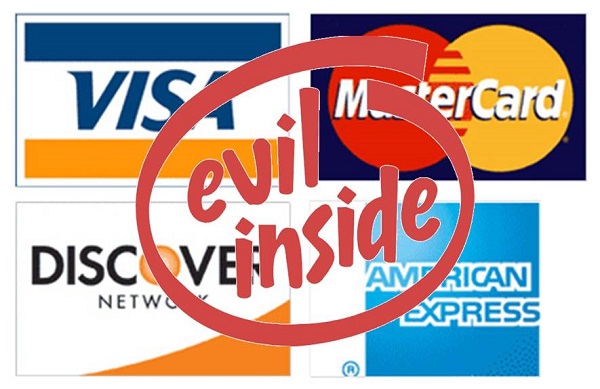Bookkeeping is tedious for most business owners unless you are a seasoned accountant or a fan of working with numbers. That is because businesses have a lot of financial details that need to be recorded, for instance, which supplier should be paid, outstanding customers, equipment to buy, significant purchases to make, and more. Without an accounting and bookkeeping system, you may lose essential business data, miss important goals, or make uninformed decisions that may affect your company’s finances.
Proper money-handling strategies are integral in any business as it helps you keep track of your long-term goals, improve your profits, and streamline seasonal cash flow changes. In addition, it will help your business stay out of trouble with the Internal Revenue Service or IRS.
By adopting good bookkeeping habits, you can avoid costly errors when it comes to record keeping. You can opt to have an in-house team to handle all your bookkeeping services, but this can be un-economical for small business owners. To save on cost, you can work with a bookkeeping agency, which often offers professional online and virtual services in Canada at very fair rates.
Here are seven tips for better bookkeeping for businesses in Canada.
Separate Your Business and Personal Finances
If you are a sole business owner, you should learn to separate your personal and business accounts. This will help you maintain records of every business and personal spending and help you keep the boundary to alleviate eating into the business growth finances.
For limited liability companies, the business is a separate entity from you, and your finances should be kept separate. That means you need to know which assets belong to the business and which are yours. By eliminating all personal transactions from the business accounts, you will lower the number of transactions the bookkeeper needs to categorize and reconcile. Additionally, your tax preparation and filing process will be seamless. You can find a bookkeeper in Canada to help you separate your accounts and provide outsourced business and personal bookkeeping services.
Control Your Business Credit
One of the common signs of an insolvent business is the inability to make payments promptly. The company may need better credit scores, lack of funding, or challenges in fulfilling its working capital needs.
When your business depends on bank financing to fund everyday operations, you will need help to pay back your high-interest debt. Therefore, you need to do due diligence before taking external funding.
You should set strict deadlines for your clients to pay what they owe and consider blocklisting repeat offenders that are taking advantage of you. Eliminate any late payments, as it is just like an interest-free loan. Your business may quickly become a cash-flow crisis if you lack rigorous credit control.
Track Business Expenses
Business expenses may be claimed against tax; therefore, tracking them is crucial if you want to cut overhead and maintain a healthy cash flow. You should always use a business credit card and keep records of expenses based on business activity.
Categorizing your expenses can be crucial, especially when your business is undergoing an CRA audit. The numbers on tax returns are often estimates, and these records help offer supporting evidence. Always remember that even trivial expenses will add up, and having records of everything can be helpful in the long run.
Overspending negatively affects any business; hence, keeping track of your expenses will ensure you track all your expenditures. Always remember that every dollar that you spend takes the business one step away from making a profit. Therefore, when running a business, keep a close watch on all your expenses, understand the benefit you gain from each expense, and document everything carefully. With outsourced online bookkeeping services, you can keep track of all your business expenses and maintain good records.
Schedule Routine Bookkeeping Times
As a business owner, you are handling many things at once, which can eat into the time you can use to monitor your financial record books.
The best way to keep your accounts is by consistently scheduling times to balance your books or working with a bookkeeping company in Canada. You can set aside time when your credit card statement is due and check through your monthly transactions to ensure everything is accurate. Although this task will take about one or two hours, it will simplify your life during the tax season by making tax preparation and filing much more effortless.
Create Budgets For Your Expenses And Set Financial Goals
Planning for business expenses, especially significant purchases, can help you best utilize your business resources and credit while giving you the peace of mind you need. Setting up and reviewing business budgets is directly related to the success of your business.
According to research, small businesses that regularly review their budgets on a weekly, monthly, and annual basis have success rates of 95%, 75%, and 25%, respectively. Therefore, if you want your business to succeed, you must have relatively high unused credit balances. In addition, you should also ensure your budget is monitored regularly, understand the benefits of using credit for your company, and be able to earmark the right amount of business payroll expenses.
Automate Manual Processes
One of the best accounting tips for growing businesses and start-ups is automating routine bookkeeping. Most accounting and bookkeeping activities are repetitive, and automating them will make your work easier and seamless.
Some repetitive bookkeeping processes you can automate include paying employees’ salaries monthly, following up on late invoices, and tracking invoices you send to customers. In addition, you can also automate the calculation of mileage payments for employee reimbursements and document utility bills in a central database.
Business owners can make life much easier by utilizing unified accounting project management solutions to help track expenses, automatically send invoices, and generate customized reports.
Consider Hiring a Tax Accountant
Investing in a seasoned tax accountant near me can be valuable for your business, even if the professional commits just a few hours every week or month to work on your small business bookkeeping and accounting needs.
A certified bookkeeper will record income and expenses and categorize them for a specified period. Conversely, a chartered accountant will help file your business taxes and set up your business’s accounting backbone. A reputable bookkeeping company will have certified tax consultants near me ready to assist you.
With an expert bookkeeper or chartered accountant handling all financial tasks, business owners can focus entirely on their business to attract customers and satisfy existing clients. They can also develop new products and services and grow their business.
Final Thoughts
Bookkeeping is a necessary evil that businesses cannot escape because almost everything depends on it. With an accurate and robust accounting system, you will get information about the business’s cash flow, performance, and financial condition, and it will help you make informed financial decisions. With the tips mentioned above in mind, you can ensure your small business bookkeeping records are available and can make better decisions for your business. You can also eliminate the headache of bookkeeping by outsourcing this function to a certified bookkeeper to help you out. Having a safe pair of skilled hands providing bookkeeping services for small businesses will give you, as the business owner, the confidence and freedom to lead from the front by focusing more on growing your business.



